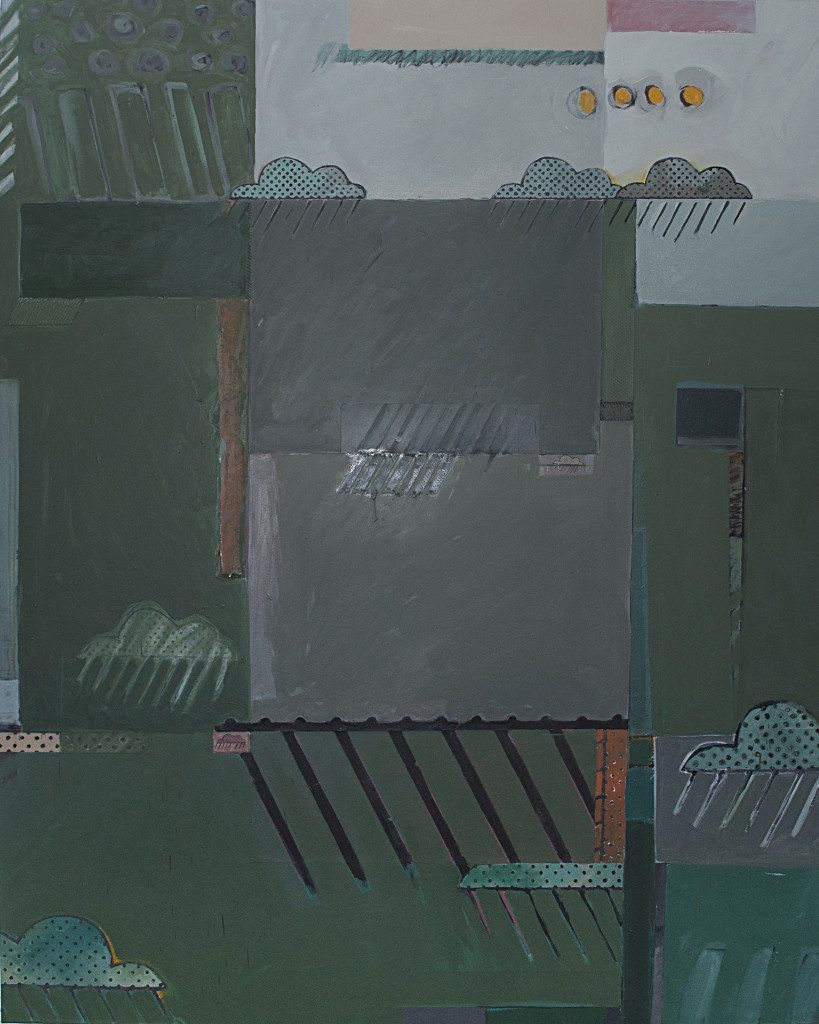
Les Linfoot’s new exhibit opens at Douglas College
By Angela Espinoza, Arts Editor
As BC residents, it’s impossible to not discuss the weather on a daily basis. As I’m writing this, our record-breaking dry spell has been rudely interrupted by our old pal rain for the first time in about a month. Artist Les Linfoot, whose works are primarily focused on the weather, will be presenting an exhibit entitled Everyone Talks About the Weather this month, and took some time to talk about it with us.
How did you get involved with the Amelia Douglas Art Gallery?
Les Linfoot: I was aware that there was a gallery [at Douglas College], and I’ve been down a couple of times to see other shows, and it looked like an interesting place… so I had a bunch of paintings I wanted to show and it just seemed like a good match. I approached the gallery myself with the suggestion that I have the show whenever they could fit me in.
Do you mind if I ask, why weather?
LL: Every day I get up, I deal with the weather. The title of the show, Everyone talks About the Weather, is derived from [a quote] apparently Mark Twain said, “Everybody talks about the weather, but nobody does anything about it,” which is a humorous little line. But also, everything we do is associated with the weather, from the minute we step outside, even in the house; everything is connected to the weather. And of course at the moment, climate change… so how the weather changes is a big subject too.
How would you describe the works in Everyone Talks…?
LL: [The works are] landscape derived I would say, [they’re] not your normal landscape. But there are elements of landscape in there, and a lot of it is also derived from maps… and aerial photographs, which are [kinds] of landscape. And some of it’s just improvised by the fact that I like ripping up paper.
Plus the weather icon symbol, the cloud with the rain coming out if it, I don’t know if you know, but I worked for a number of years as an editorial artist at a newspaper, and one of the things I did was make the weather maps way back in the ‘80s before we got computers. We used to actually draw them and you would use various graphic tools and graphic supplies, like…little lithograph symbols of clouds to make the weather maps, so I’ve been playing with those a bit in there.
What other kinds of pieces will be there?
LL: The exhibit has 12 paintings in it… they’re all weather-report related, then there are 10 drawings. Basically what happens in my working is I work away at the paintings, and then when I hit a dense spot or I can’t go on or something, then I take [the painting] off and I put one of these little drawings up. The drawings are kind of like sketches, and actually now people don’t call them drawings, they tend to call them collages. They’re sort of like sketches or notes or little breaks for me, so there’s sort of two sides to the show, there’s the more serious work in the paintings, and then the smaller works are just kind of… a respite from the paintings.
What do you want visitors to take from the exhibit?
LL: I’d like them to go home looking at landscapes in a slightly different way, and realizing it doesn’t have to mean a horizon and a group of trees. I’d like them to think how the landscape interacts with all the things that make it a landscape—you, the buildings around you, the sky, all that stuff included in [developing] a landscape.